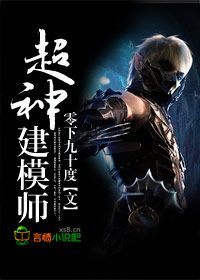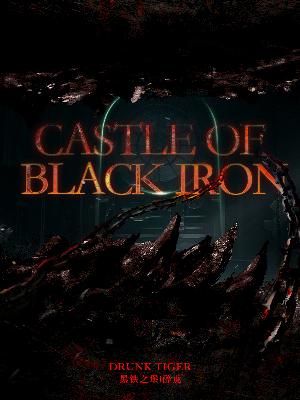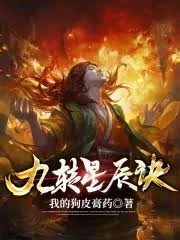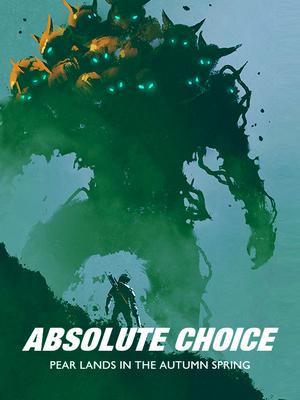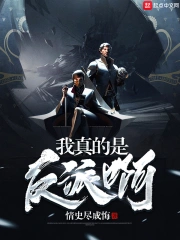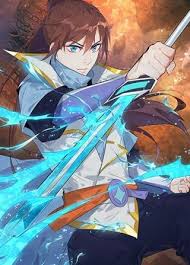The Story in 3 Sentences
An unassuming high school student named Su Hao begins his journey with “Model analysis,” a seemingly worthless origin ability in a world teeming with superpowers and berserk beasts .
His power evolves from passive observation into an active tool for replication and virtual simulation, allowing him to train relentlessly by copying others’ skills and fighting digital clones, turning theoretical weakness into overwhelming practical strength .
He ascends from the bottom of the power hierarchy to challenge gods and reshape reality itself, his initial dream of modeling the entire world becoming a terrifying, godlike command over its very fabric .
Why It Stands Out
1. The Underdog’s Toolkit: Brains Over Brawn in a Brawler’s World
While everyone else trains their flashy, innate powers, Su Hao’s genius lies in weaponizing his mind. His “Model analysis” isn’t about raw force; it’s about understanding, copying, and out-thinking. He turns every opponent into a teacher and every battle into a data point, making his victories feel earned through intellect and relentless preparation rather than plot armor or sudden power-ups. This cerebral approach to combat in a genre often dominated by brute force is its most refreshing hook.
2. The Simulation Grind: Training Arcs That (Sometimes) Feel Like Real Progress
The novel leans heavily into virtual reality training, where Su Hao creates perfect digital replicas of his enemies to practice against. When it works, it’s brilliant—readers see his strategy unfold as he dissects an opponent’s moveset and devises a counter. It transforms training from a montage into a core part of the narrative, showcasing his growth in tangible, step-by-step detail. This mechanic provides a unique structure for progression that feels more systematic than mystical.
3. A Sci-Fi Soul Trapped in a Xuanhuan Body
It blends the rigid, almost video-game-like systems of sci-fi (stats, levels, virtual simulations) with the boundless, mystical escalation of xuanhuan. You get quantified power levels alongside world-shattering divine battles. This creates a fascinating tension: the story tries to ground its fantastical elements with pseudo-scientific rules derived from Su Hao’s analytical ability, offering a different flavor of wish-fulfillment where logic, not just luck or lineage, can pave the path to godhood.
Characters That Leave a Mark
There’s Chen Yiran – Su Hao’s primary love interest, possessing a perfect S-grade talent herself, her presence is a constant motivator and sometimes a source of conflict, particularly against his rivals . Her choices and loyalties drive significant emotional stakes in the early narrative .
You’ll meet Sun Yaotian, who serves as Su Hao’s principal love rival and early antagonist, a genius with a powerful A-rank metal control ability whose arrogance and direct confrontations force Su Hao to adapt and grow quickly . Their clashes are personal and pivotal, setting the tone for the protagonist’s underdog status .
And Zhang Yating? They’re the one who joins Su Hao’s life as another romantic interest, adding complexity to his personal relationships and providing additional emotional depth and potential alliances as the story progresses .
The Flaws Fans Debate
The tournament arcs stretch on for hundreds of chapters, becoming a slog of repetitive virtual and real battles that offer little narrative payoff.
Many readers feel cheated when Su Hao, whose power lets him scan opponents instantly, inexplicably fails to use this advantage, leading to contrived defeats that feel like authorial manipulation.
The virtual training sequences are often duplicated verbatim in the actual fights, forcing readers to experience the same combat scenarios twice, which kills pacing and momentum.
Must-Experience Arcs
Ch. 1–50: The Spark of Analysis – Su Hao discovers and begins to master his “Model analysis” ability, using it to understand his classmates and survive his first real threats, laying the foundation for his unique combat style.
Ch. 400–600: The Virtual Crucible – The story dives deep into large-scale tournaments where Su Hao’s team relies heavily on virtual reality simulations to prepare, showcasing the peak (and the pitfalls) of his strategic approach against increasingly powerful foes.
Ch. 1000–1084: Godhood’s Price – In the final chapters, Su Hao’s power reaches its zenith as he confronts existential threats and grapples with the true meaning of controlling a world model, culminating in a godlike state that redefines his relationship with reality .
Killer Quotes
“The current outcome is something which they had agreed. However, my own outcome will never reach their turn to decide upon! By the time I have reached the summit, I will carve my own path.”
“The earth is emptiness and chaos, and I am its shaper.”
Final Verdict
Start Here If You Want:
A protagonist who wins with his head, not just his fists, turning analysis into his ultimate weapon.
A unique power system centered around simulation and replication that offers a fresh take on cultivation tropes.
A long, epic journey from zero to god that delivers on its core premise of world-modeling, even if the path is winding.
Study If You Love:
Deconstructing how a seemingly weak ability can be optimized into an overpowered system through clever application and hard work.
Exploring the narrative potential and limitations of virtual reality as a training and storytelling device within a fantasy framework.
Analyzing the blend of hard sci-fi mechanics (data, simulation) with soft xuanhuan mysticism (godhood, world creation) and how the two genres inform each other.
Avoid If You Prefer:
Tightly paced narratives without sprawling, repetitive tournament arcs that dominate the middle section.
Stories where the protagonist consistently uses all their established abilities logically, without convenient lapses for plot reasons.
Novels that conclude with a neatly wrapped, emotionally resonant ending, as some readers find the finale lacking in strong closure for all its threads .
